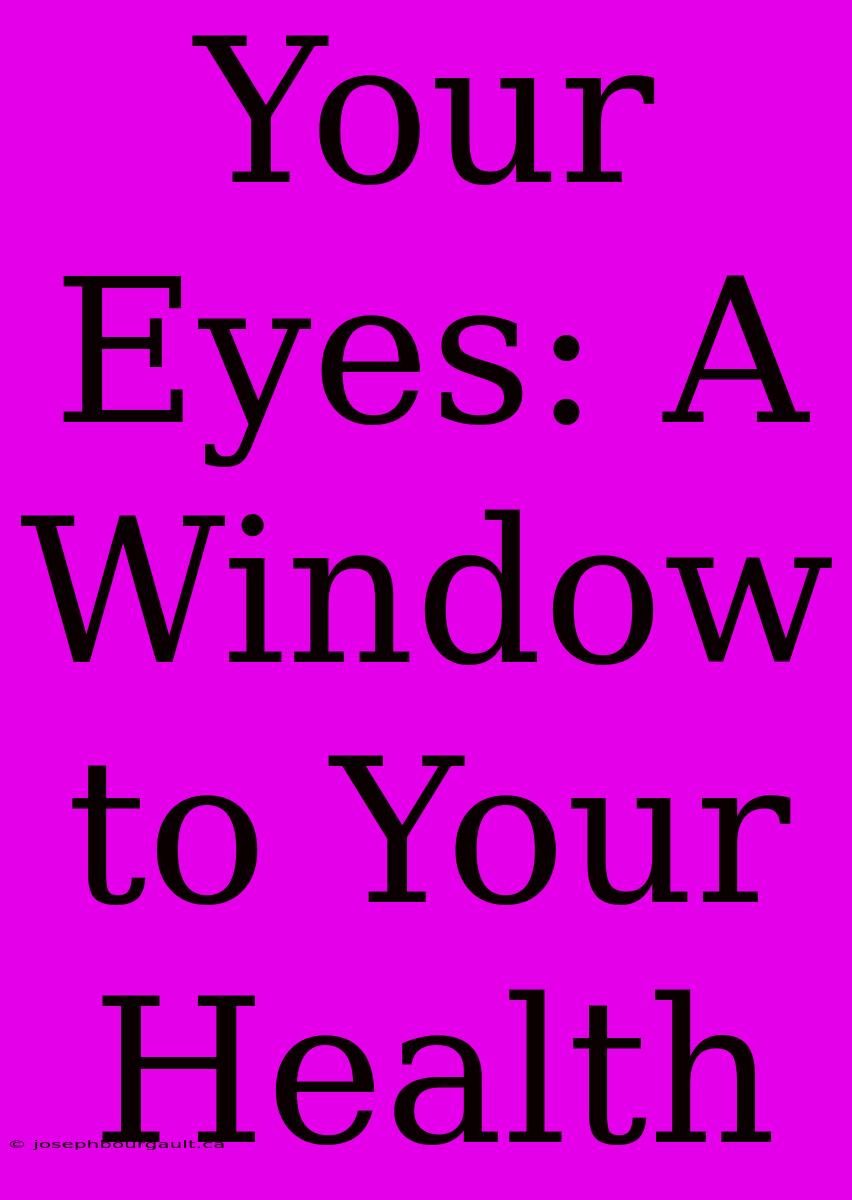Your Eyes: A Window to Your Health
Your eyes are more than just portals to the world; they're also windows into your overall health. While we often focus on vision problems, our eyes can reveal signs of various health conditions, some even before symptoms appear elsewhere.
The Connection Between Your Eyes and Your Health
The intricate network of blood vessels, nerves, and muscles in your eyes makes them sensitive to changes in your body. This means that conditions affecting your heart, blood sugar, or even your brain can manifest in your vision.
Common Eye Conditions and Their Health Implications:
- Diabetic Retinopathy: High blood sugar damages blood vessels in the retina, potentially leading to vision loss. This is a serious complication of diabetes, making regular eye exams crucial for diabetic patients.
- High Blood Pressure: Uncontrolled hypertension can damage blood vessels in the eye, causing blurred vision, floaters, and even hemorrhages.
- Glaucoma: This condition causes damage to the optic nerve, leading to peripheral vision loss. It's often linked to high pressure inside the eye, but can also be caused by other factors.
- Macular Degeneration: This disease affects the central part of the retina, leading to blurred central vision. It's the leading cause of vision loss in people over 50.
- Thyroid Eye Disease: This condition causes the eyes to bulge outwards, affecting vision. It's linked to autoimmune disorders like Graves' disease.
- Multiple Sclerosis (MS): This neurological disorder can cause optic neuritis, leading to inflammation of the optic nerve and sudden vision loss.
- Migraines: These severe headaches can cause visual disturbances known as "aural" symptoms, including flashing lights or blind spots.
What to Look Out For:
- Sudden vision changes: Blurred vision, loss of vision, or any sudden changes in your sight are red flags and require immediate attention.
- Double vision: This can indicate a problem with your eye muscles or neurological conditions.
- Floaters and flashes: These may be harmless, but can also be a sign of a detached retina.
- Redness or swelling: These can indicate inflammation, infections, or other issues.
- Pain or discomfort: Any pain in or around the eye should be investigated.
The Importance of Regular Eye Exams:
Regular eye exams are essential for maintaining healthy vision and detecting early signs of health problems. Even if you have good vision, it's recommended to schedule comprehensive eye exams every 1-2 years, or more frequently if you have certain risk factors.
Beyond the Eye Doctor:
While regular eye exams are crucial, maintaining good overall health can also help protect your vision. This includes:
- Controlling your blood sugar: If you have diabetes, keeping your blood sugar levels within a healthy range is essential for preventing diabetic retinopathy.
- Managing your blood pressure: Keeping your blood pressure under control can reduce your risk of vision problems.
- Quitting smoking: Smoking increases your risk of developing several eye diseases, including cataracts and macular degeneration.
- Eating a healthy diet: A diet rich in fruits, vegetables, and omega-3 fatty acids can support healthy vision.
Your Eyes: A Valuable Indicator
By paying attention to your vision and understanding the connection between your eyes and your health, you can proactively protect your vision and overall well-being. Remember, your eyes offer a unique glimpse into your health, so don't ignore any changes or symptoms.

